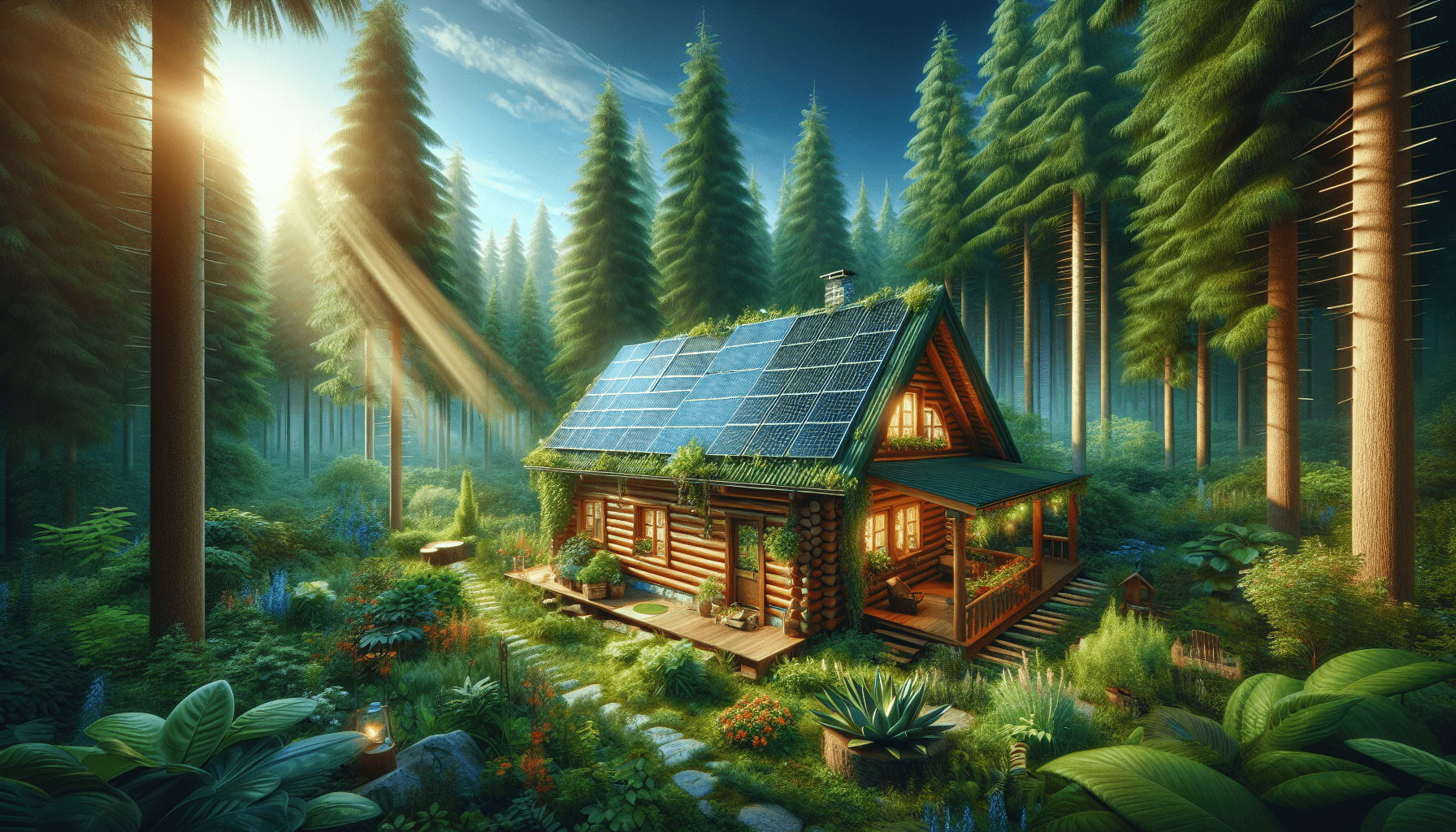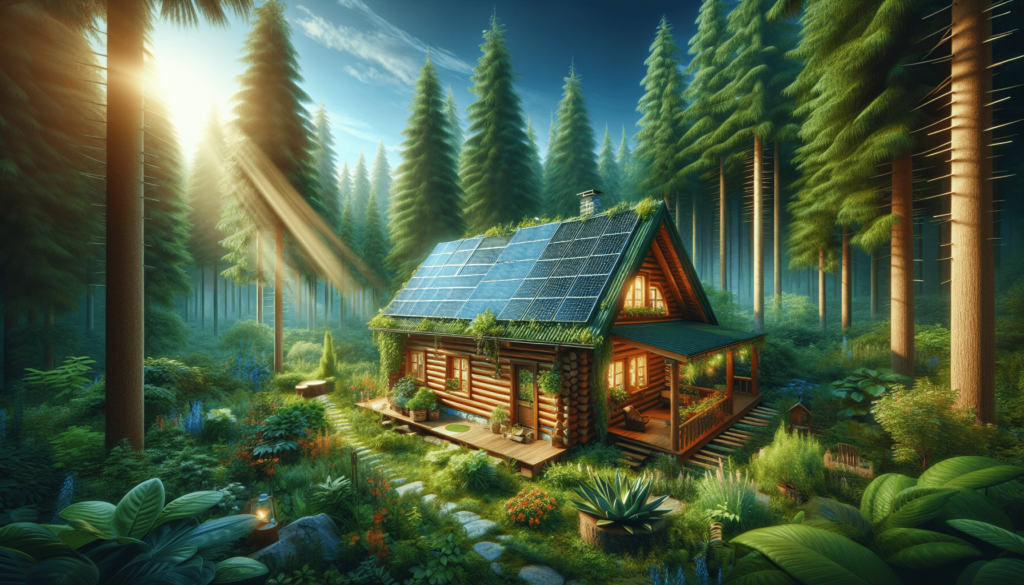
Curious about the benefits of off-grid living? Picture yourself surrounded by nature, your days not defined by the noise of city life but by the soothing hum of wind and the rustle of leaves. In this exploration, we delve into whether stepping away from modern conveniences and integrating into a self-sufficient lifestyle can lead to better health and well-being. We’ll uncover how this choice impacts your physical health, mental clarity, and overall quality of life, providing insights that might just inspire you to simplify and reconnect with the world around you. Have you ever wondered if living off-grid could be a healthier alternative to the modern urban lifestyle?
Introduction
In a world buzzing with high-speed internet, convenience foods, and around-the-clock services, the concept of living off-grid might seem like a distant dream or a radical lifestyle choice. However, for many, it has become an appealing alternative to the hustle and bustle of urban life. But is living off grid actually healthier? Let’s explore this question in detail.
What Does Living Off-Grid Mean?
Definition of Off-Grid Living
Living off-grid means being self-sufficient and not reliant on public utilities like electricity, water, or sewage. It involves generating your own power, sourcing your own water, and managing waste.
Common Misconceptions
People often think that living off-grid equates to primitive living. However, it can range from basic minimalism to highly technologically advanced setups using solar panels, wind turbines, and sustainable farming methods.
Why People Choose Off-Grid Living
The motivations for this lifestyle vary widely. Some aim for environmental sustainability, others long for freedom from utility bills, and a few seek an escape from societal norms. But the common thread often ties back to seeking a healthier, more fulfilling life.

Mental Health Benefits
Reduced Stress Levels
Ever thought about how much stress you carry on a daily basis because of the constant noise, pollution, and social obligations of urban living? Off-grid living can offer a calmer environment, which in turn can reduce stress.
Increased Satisfaction
Living off-grid often involves working closely with nature and reaping the rewards of personal effort. Planting your own food and generating your own power can provide a tremendous sense of accomplishment.
Nature Connection
Being surrounded by nature has been shown to reduce anxiety and depression. Proximity to natural elements and reduction in technological distractions contribute significantly to better mental health.
Physical Health Benefits
Clean Air
One of the significant benefits of living off-grid is the improved air quality. Away from city pollutants, you get to breathe cleaner, fresher air, which is beneficial for your respiratory system.
Physical Activity
In a self-sufficient lifestyle, physical activity is part of your daily routine: gardening, chopping wood, building structures, and maintaining your homestead. This constant activity helps keep you fit and healthy.
Natural Diet
Most off-grid homes aim for food self-sufficiency through farming and gardening. Eating home-grown, organic food is free from pesticides and other chemicals, contributing to overall better health.

Environmental Health Benefits
Reduced Carbon Footprint
Living off-grid often involves using renewable energy sources, such as solar or wind power, thus significantly reducing your carbon footprint.
Sustainability
Self-sufficient living encourages sustainable practices like composting, rainwater harvesting, and permaculture, promoting a healthier planet.
Minimal Waste
Off-grid living encourages the use of reusable products and efficient waste management systems, leading to less pollution and lower landfill usage.
Challenges of Off-Grid Living
Initial Setup Costs
One of the significant barriers is the initial cost of setting up renewable energy sources, water systems, and sustainable agriculture.
Isolation
Social isolation is a common challenge for those living far from towns or communities. This can sometimes lead to loneliness and affect mental health.
Physical Demands
The physical demands of daily chores and self-maintenance can be taxing, particularly for those not accustomed to manual labor.
Financial Aspects
Cost Savings
While the initial setup is costly, the savings over time can be substantial. No utility bills, lower food costs, and reduced commuting expenses make a significant difference.
Self-Sufficiency
Being less reliant on external systems can offer a sense of financial security that’s hard to find in a traditional setup.
Income Opportunities
Monetizing a homestead through selling farm products, opening a bed-and-breakfast, or offering workshops can provide a steady income stream.
Off-Grid Successful Case Studies
Real-Life Examples
- The Johnson Family: Transitioned from a busy urban life to an off-grid farm in Vermont, reducing their living expenses by 70%.
- Sustainable Dave: A solo adventurer who built an entirely off-grid cabin in the woods of Oregon, now runs workshops teaching others how to do the same.
Lessons Learned
Case studies highlight that while off-grid living has challenges, the rewards in terms of mental, physical, and financial health are considerable.
Steps to Transition Off-Grid
Planning
Breaking down the transition into manageable steps is crucial. Research, community engagement, and initial investments are essential for a successful move.
Energy Solutions
Switching to solar, wind, or hydroelectric power systems can provide sustainable energy.
Water and Waste Management
Investing in rainwater harvesting systems and composting toilets can help manage resources efficiently.
Learning Skills
Learn essential skills like gardening, carpentry, and basic mechanics to handle everyday challenges.
Community and Support
Importance of Community
Living off-grid doesn’t mean you have to live in isolation. Community plays a crucial role in sharing resources, providing emotional support, and offering practical help.
Online and Offline Communities
Numerous online forums and local groups offer a wealth of information and support for off-grid enthusiasts. Joining a community can provide mentorship and inspiration.
| Resource Type | Examples |
|---|---|
| Books | “The Humanure Handbook” by Joseph Jenkins, “Off-Grid Solar” by Joseph O’Connor |
| Websites | Homestead.org, Off-Grid.net |
| Online Forums | Reddit’s r/OffTheGrid, Permies |
| Local Groups | Local homesteading meetups, Cooperative farms |
FAQs
Can You Live Off-Grid Anywhere?
While technically possible, local laws and the availability of natural resources can be limiting factors. Researching legal and environmental conditions beforehand is crucial.
Is It Expensive to Live Off-Grid?
The initial investment can be high, but long-term savings generally outweigh the startup costs. Proper planning and budgeting are key.
Is Living Off-Grid Safe?
When appropriately planned, living off-grid can be just as safe as urban living. Awareness of the local wildlife, emergency medical plans, and secure shelters are necessary.
Can Families with Children Live Off-Grid?
Absolutely, although it requires careful planning to meet the educational and social needs of children. Many off-grid families homeschool or use alternative education methods.
Conclusion
So, is living off grid healthier? It appears that for many, the answer is a resounding yes. The mental and physical health benefits, coupled with a sustainable lifestyle, make off-grid living an appealing choice. While there are challenges and initial investments to consider, the rewards often outweigh the drawbacks.
Whether you’re dreaming of a simpler life closer to nature or you’re driven by the environmental benefits, off-grid living could be the path to a healthier, happier you. Don’t just take our word for it; the increasing number of people making this transition suggests there might be something to this lifestyle worth exploring.
